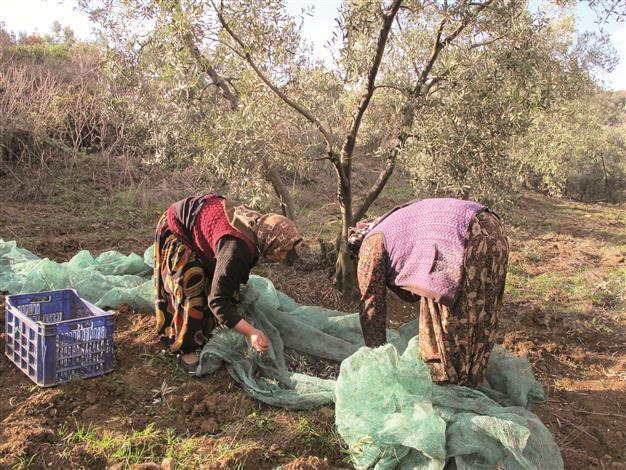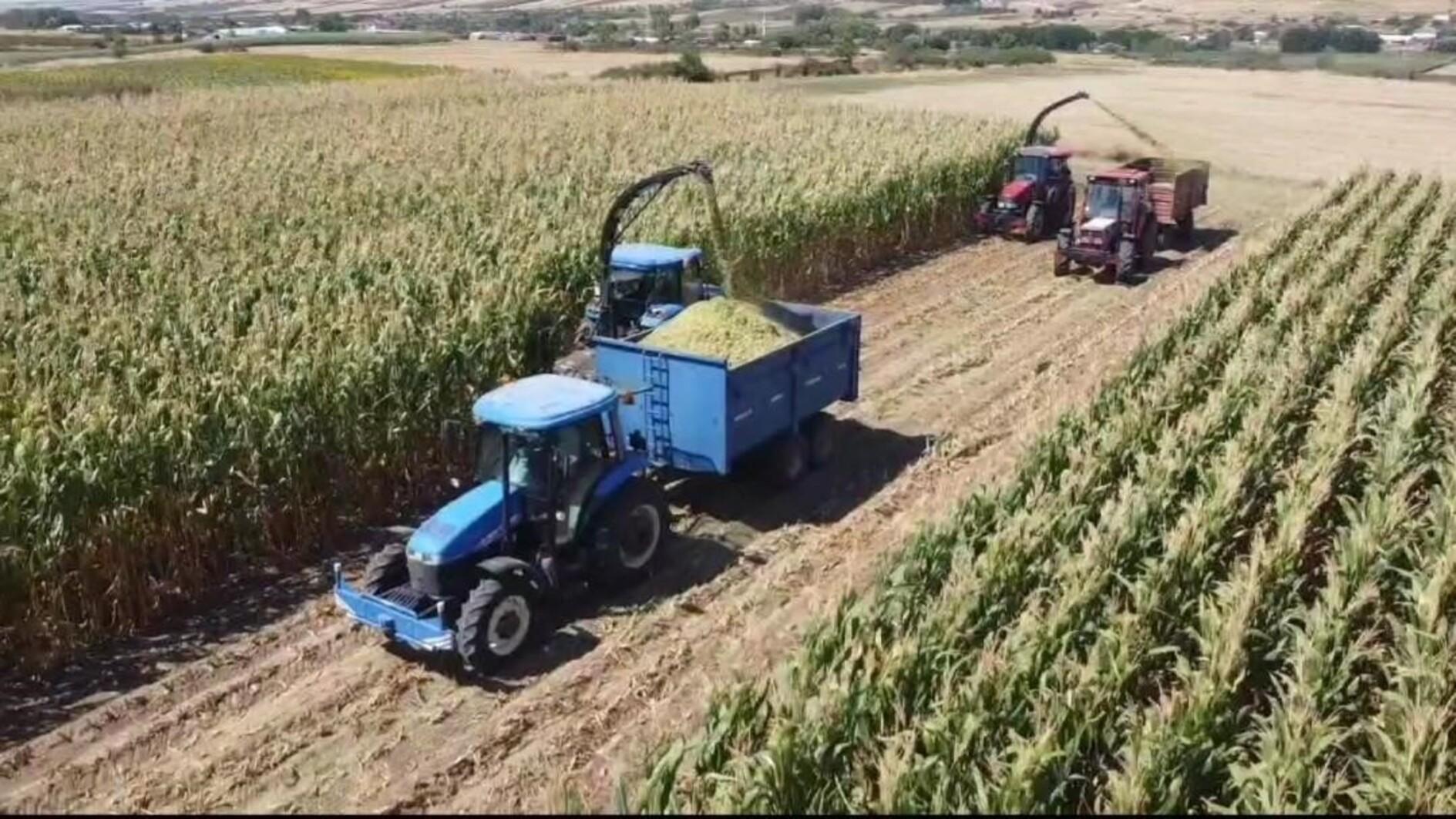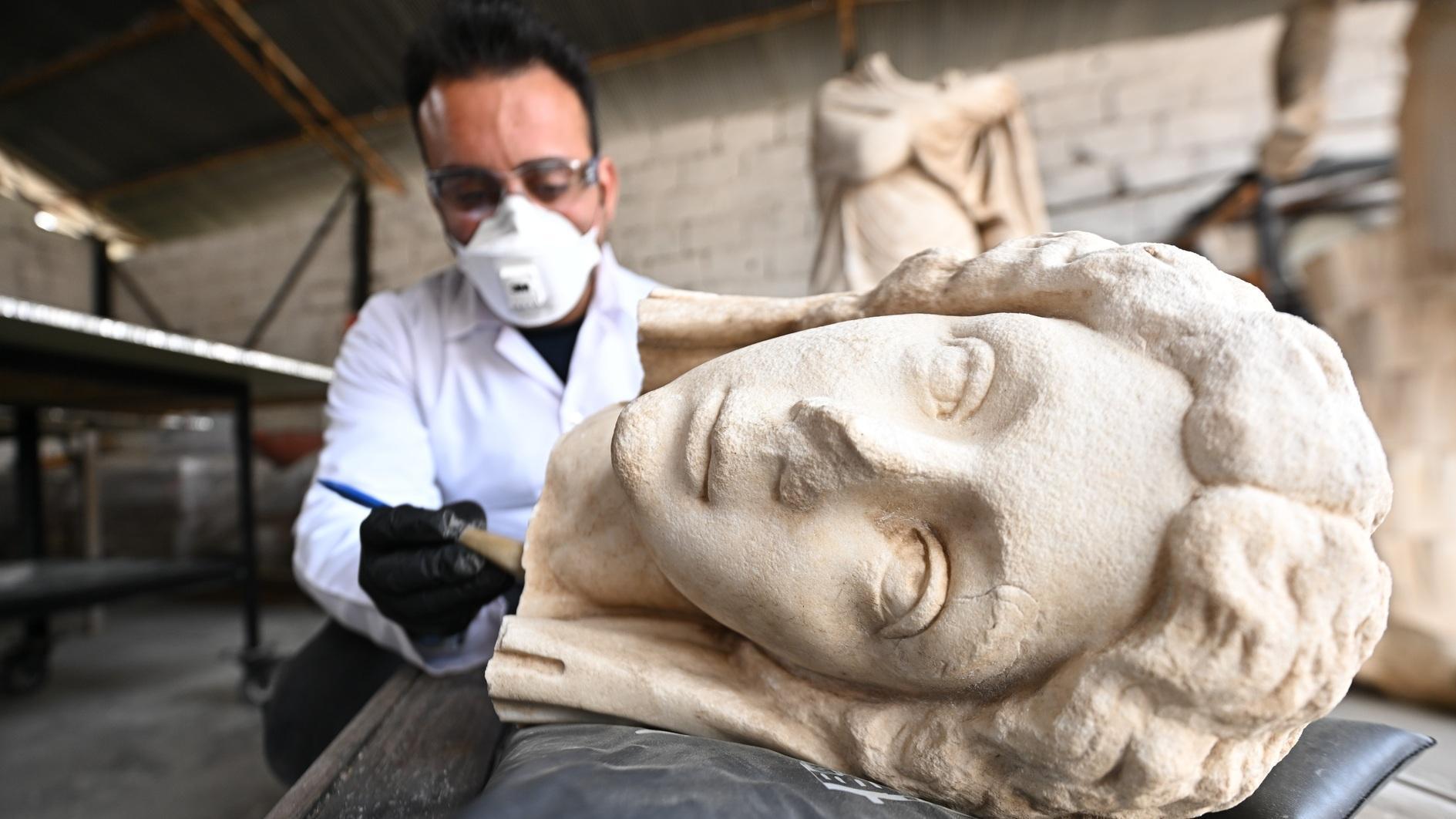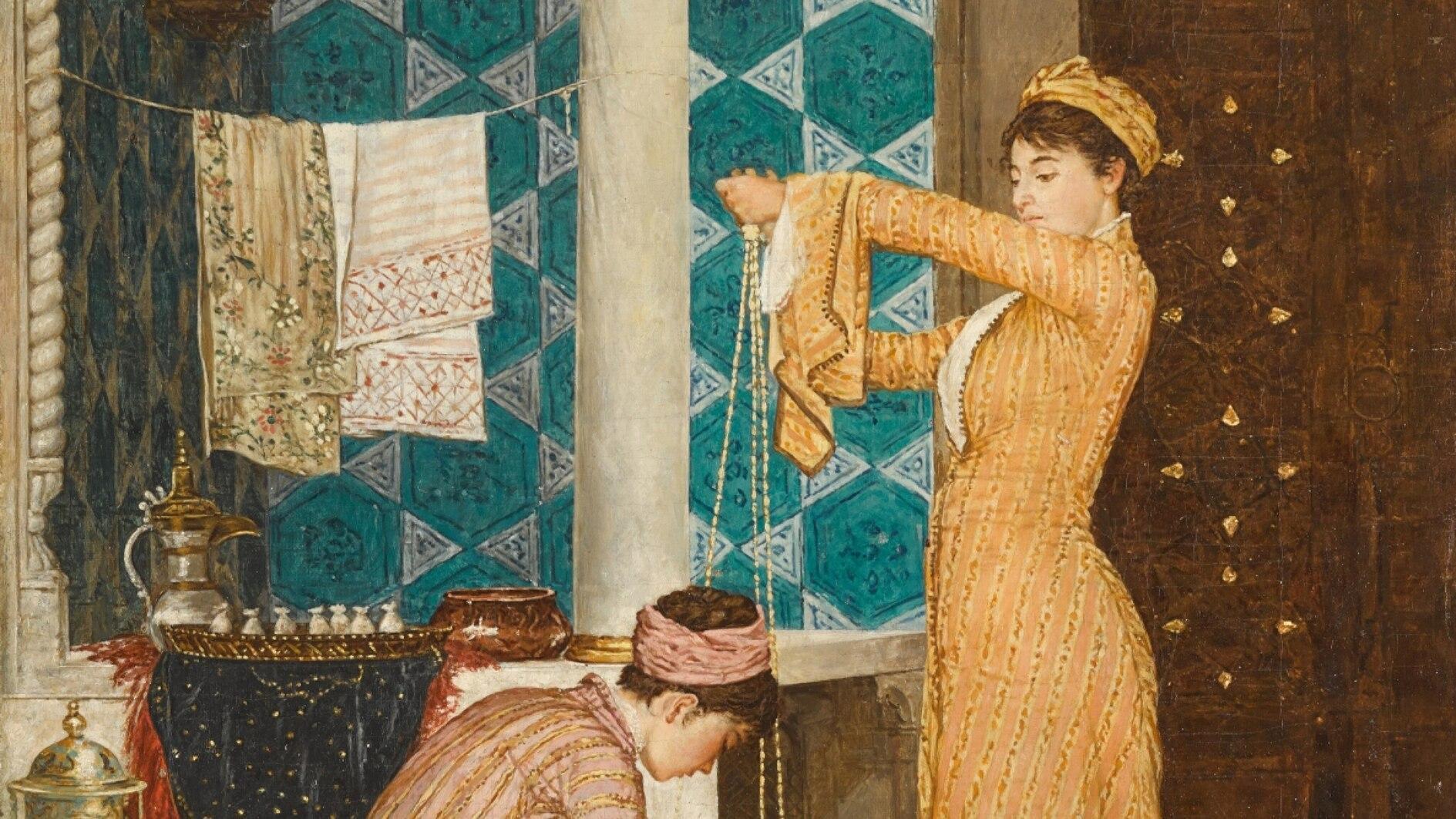Turkish-brand olive oil created in Kumyaka
Wilco van Herpen KUMYAKA - Hürriyet Daily News

Women collect the olives that fall to the ground and put them in a crate. The picked olives are washed and then ground with two enormous rotating millstones. Photo by Wilco Van Herpen.
It is early in the morning when I arrive in Kumkaya. It is an old Rum village – Rum being the name for former Greek minorities in Turkey – but unfortunately some of the houses have gone. Still, the village has a friendly feeling, and the new houses look quite nice in contrast to some other old Turkish villages. I am a bit late and hope the workers have waited for me. When my car turns into the street I see a group of people waiting next to a big tractor. I am relieved they have waited for me.With 10 workers I drive out of the little village. I am sitting together with them in the trailer behind the tractor. One of them carries a baby carriage where her 4-month-old baby is sleeping. It is a little bit chilly but she has dressed her son very warmly. We are heading for the mountains, and the road is so bumpy and steep it is sometimes difficult to keep my balance. Everywhere I look I see olive trees and people collecting the olives. Further away, I can see the Marmara Sea hiding itself in the fog. A fishing boat is slowly disappearing into the mist. After a 20-minute drive the tractors stops and the workers jump out of the trailer. We have arrived.
The trees are loaded with olives, little black olives. In this region they produce olives for consumption, not for oil. Unfortunately, this year was a bad year for the olive farmers. It did not rain enough so their olives are small, unsuitable for consumption. Generally, the ones we eat at breakfast are bigger but, because of lack of rain this year, all the olives are small. What is a curse for one is a blessing for another. However, this year most of the olives will be used for olive oil.
I start picking the olives. Someone has put canvas on the ground around the trees and all the olives I pick fall onto the canvas. Slowly I finish the lower part of the tree. One of the workers climbs into the tree and is picking the olives too high for me to reach. After I finish my first tree I go to another one. A woman starts collecting the olives that fall to the ground. She puts them in a crate and within no time, another crate is full. It is remarkable the people here do not hit the trees with long sticks, which is what you generally see during the olive season and is a rough way to collect olives from the tree. While hitting the branches, people might harm the trees, breaking the branches and causing wounds requiring unnecessary energy from the tree in order to heal.
Within a couple of hours the olives have to be in the factory where they will be washed and then ground. It is the method of making olive oil that brought me to Kumkaya, having heard about this little factory that recently started making olive oil. There were no modern fancy machines in a big hall, but basic equipment in a beautiful restored building. The picked olives are washed and then ground with two enormous rotating millstones, crushing all the pits of the olives and turning them into a kind of dough. The specialist checks this dough and, once the olive puree is fine enough, pours this mixture into a small basin. From there, the olive puree is put in special bags and the bags are stacked on top of each other.

A little bit of golden green oil drips out of the bags. This is the best quality olive oil you can get. No press machines or water are being used, it is just the oil that slowly drips out of the bags. He starts a machine and the whole pile of bags containing the olive puree starts moving toward a big metal plate. Slowly all the precious oil is squeezed out of the bags and put into big barrels where the oil will rest for a while so the little particles in the oil can sink to the bottom. On top is what I have been waiting for: liquid gold.
Now it is time for the second press, but this time they use warm water. Even more oil is being pressed out of the pile of bags clamped down in the press. This oil is not as good as the first press, and so they pack this as kitchen oil.
In the meantime Nazlıgül walks around the little oil factory where there is still so much to do; starting a boutique oil workshop sounds like fun but the last couple of weeks have been very hectic. Special bottles have been ordered from Italy because making special brand olive oil is an old tradition in Italy whereas in Turkey it is a rather new product.
Fortunately the government has been supportive of people who want to create a special brand. In the past a big part of the olive oil would be shipped to Italy where they packed it and put their own label on the bottle. To keep larger quantities of higher quality oil in Turkey, however, Ankara has started supporting the little olive oil producers. Turkey is ambitious and wants to climb the scale of olive oil producing countries.
Now ranking sixth in the world of oil producing countries, Turkey wants to climb the ladder until it reaches at least third place. For Nazlıgül this number is not important yet. She has to take care of her little baby as she proudly makes her olive oil. She pours some of the liquid gold in a special dish and cuts a loaf of bread. It is time for me to taste the olive oil. The oil is fresh, light and dances around in my mouth. I am impressed with the quality. Because of people like Nazlıgül, this little village is being put back on the map.
















